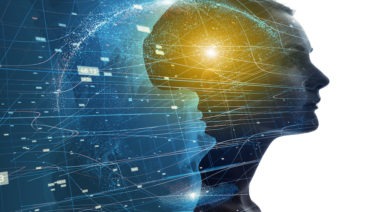Woman Missing Large Part of Brain Ranks 98th Percentile in Speech

A recent study sheds light on the remarkable case of a woman who grew up without a key part of her brain and was barely affected by it.
In the endless search to understand the workings of the human mind, scientists take special interest in cases of the most unique brains. The most recent and fascinating is that of a woman known as EG (to protect her privacy.)
Now in her fifties, EG first learned her brain was atypical in her twenties when she had it scanned for an unrelated reason. She was told then that she had been missing her left temporal lobe from infancy, which was most likely the result of an early stroke. This part of the brain is thought to be involved with language processing, which makes EG’s story so extraordinary.
Despite being repeatedly told by doctors that she should have major cognitive deficits and neurological issues, EG has a graduate degree, has enjoyed an impressive career, and speaks Russian as a second language.
Several years ago, EG met Dr. Evelina Fedorenko, a cognitive neuroscientist at M.I.T. who studies language. Fedorenko was immediately fascinated by EG’s case and conducted a number of studies, the first of which was recently published in the journal Psychologia.
As part of the study, EG took a vocabulary test and scored in the 98th percentile. Brain imaging revealed that, in the absence of EG’s left temporal lobe, the task of language processing seems to have shifted over to her right hemisphere.
Ella Striem-Amit, a cognitive neuroscientist at Georgetown University told WIRED, “The remarkable thing about this patient and other such patients who were missing large chunks of their language system at birth, is how well they compensate.”
For EG, the study has been a welcome validation, after decades of being made to feel defective.
As she wrote in the published paper: “Please do not call my brain abnormal, my brain is atypical. If not for accidentally finding these differences, no one would pick me out of a crowd as likely to have these, or any other differences, that make me unique.”
Fedorenko’s team plans to conduct several more studies on EG and expects to come away with an even richer understanding of the brain’s seemingly limitless potential for flexibility and adaptation.
EG said she hopes, “it will also take some stigma away from atypical brains.”
The Pineal Gland’s Spiritual Connection With the Third Eye Chakra

The third eye is our greatest gift to connect us to source and remind us of a universe much more mystical than we can perceive with our physical senses. It’s through the awakening of the third eye and its corresponding pineal gland that we’re able to attain supernatural feats of telepathy, psychic vision, and an intimate connection with God.
Rare is a conversation on higher consciousness without a mention of the pineal gland. Its prevalence is more than a fad; it’s an imperative first step to attaining our full human potential.
What is the Pineal Gland?
The pineal gland, often referred to as the “third eye” in Eastern esoteric religions (Hinduism, Buddhism, and Taoism), is a pea-sized endocrine gland located deep in the center of the brain, between the two hemispheres. In Western medicine, it is an organ primarily recognized for its role in regulating the body’s circadian rhythms and melatonin production, which helps regulate sleep-wake cycles. The pineal gland also plays a part in the body’s response to light and darkness, influencing mood, energy levels, and overall well-being. While it holds significant physiological importance, some spiritual practices also attribute metaphysical qualities to the pineal gland, linking it to intuition, perception, and spiritual enlightenment.
The Pineal Gland and Third Eye Chakra
The chakra system is the way the spirit moves within the physical body—how the spirit animates form. The chakras can be imagined as wheels of energy to remain balanced and open for optimal human function. If stagnation appears within the chakra system, the physical body will be affected by unease, depression, and even illness.
Chakras are energy centers, whereas organs have defined locations. The chakras are ruled by the organs but are not confined to a specific location. The heart chakra, for instance, is in the center of the chest, while the physical heart is on the left side. Similarly, the third eye chakra is located in the center of the forehead near the pineal gland.
The pineal gland is known as the third eye chakra or ajna chakra in the Hindu system. A closed ajna (i.e. mind) is said to lead to confusion, uncertainty, cynicism, and pessimism.
Every esoteric tradition heralded the third eye as our connection to spirit. It’s the space between humans and God, moving us from the isolation experienced in the human condition—through an open and vibrant third eye, we find our highest source of ethereal energy. A return path to God is offered when one works to expand third-eye awareness.




































